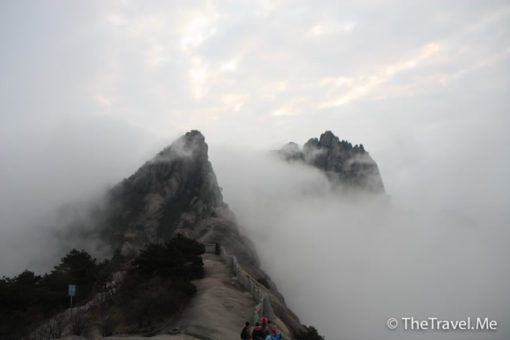
Mist of Huangshan
Huangshan (Chinese: 黄山, literally meaning the Yellow Mountain) is a mountain range in southern Anhui (安徽) Province in eastern China, it is a UNESCO World Heritage Site and one of China's major tourist destinations.

Huangshan (Chinese: 黄山, literally meaning the Yellow Mountain) is a mountain range in southern Anhui (安徽) Province in eastern China, it is a UNESCO World Heritage Site and one of China's major tourist destinations.

Huangshan (Chinese: 黄山, literally meaning the Yellow Mountain) is a mountain range in southern Anhui (安徽) Province in eastern China. Huangshan is well known for its scenery, Choumeizai is so lucky that he can see the beautiful rime in Huangshan.

Huangshan (Chinese: 黄山, literally meaning the Yellow Mountain) is a mountain range in southern Anhui (安徽) Province in eastern China. West Sea Canyon (西海大峽谷) is a newly developed tourist attraction, also dubbed Baiyun Valley (白雲谷).
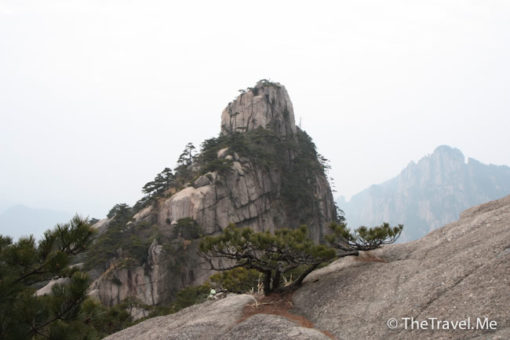
Huangshan (Chinese: 黄山, literally meaning the Yellow Mountain) is a mountain range in southern Anhui (安徽) Province in eastern China. Huangshan has long been a popular tourist destination, but not a lot of tourists have visited West Sea Canyon (西海大峽谷).
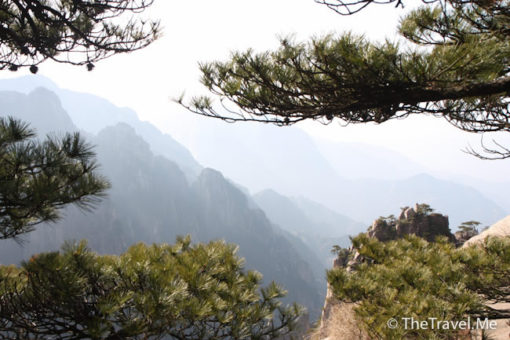
Huangshan (Chinese: 黄山, literally meaning the Yellow Mountain) is a mountain range in southern Anhui (安徽) Province in eastern China. Huangshan is well known for its scenery, Choumeizai will show you some beautiful Huangshan pine trees.

Huangshan (Chinese: 黄山, literally meaning the Yellow Mountains) is a mountain range in southern Anhui (安徽) Province in eastern China. Huangshan is well known for its scenery, Choumeizai will show some peculiarly-shaped rocks in the mountains.
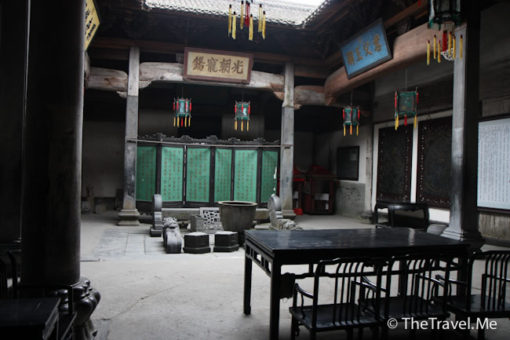
Xidi (Chinese: 西遞) is a village in the south of Anhui (安徽) province, China. The village was declared a part of the ‘Ancient Villages in Southern Anhui’ World Heritage Site by UNESCO in 2000, also a famous tourist attraction.

Xidi (Chinese: 西遞) is a village in the south of Anhui (安徽) province, China. The village was first built during the Huangyou (元祐) era (1049–1053) of Song (宋) Dynasty, the village was originally called Xichuan (West River), owing to the water courses flowing through it.

Hongcun (Chinese: 宏村) is a village in southern Anhui (安徽), China. The village was built in 1131 (Song Dynasty), the architecture and carvings dating back to the Ming (明, 1368-1644) and Qing (清, 1644-1911) Dynasties are said to be among the best of their kind in China.

Hongcun (Chinese: 宏村) is a village in southern Anhui (安徽), China. Hongcun is a popular tourist attraction due to its historical buildings and beautiful scenery. Several scenes from the film ‘Crouching Tiger, Hidden Dragon’ (臥虎藏龍) were filmed in Hongcun.

Hongcun (Chinese: 宏村) is a village in southern Anhui (安徽), China, near the southwest slope of Mount Huangshan (黃山). Hongcun is a beautiful historical village, it was listed as a UNESCO World Heritage Site in 2000.
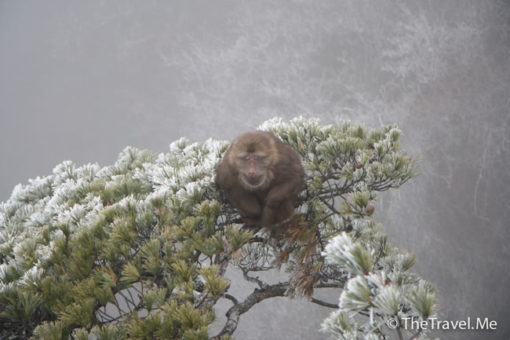
'Sea-Watching Monkey Rock' is a famous scenic spot in Huangshan(黃山), its name comes from a rock which looks like a monkey, Choumeizai never expected that he could see a real monkey here, but he did.